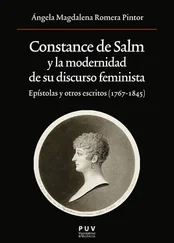Magdalena Tulli - Flaw
Здесь есть возможность читать онлайн «Magdalena Tulli - Flaw» весь текст электронной книги совершенно бесплатно (целиком полную версию без сокращений). В некоторых случаях можно слушать аудио, скачать через торрент в формате fb2 и присутствует краткое содержание. Год выпуска: 2007, Издательство: Archipelago Books, Жанр: Современная проза, на английском языке. Описание произведения, (предисловие) а так же отзывы посетителей доступны на портале библиотеки ЛибКат.
- Название:Flaw
- Автор:
- Издательство:Archipelago Books
- Жанр:
- Год:2007
- ISBN:нет данных
- Рейтинг книги:5 / 5. Голосов: 1
-
Избранное:Добавить в избранное
- Отзывы:
-
Ваша оценка:
- 100
- 1
- 2
- 3
- 4
- 5
Flaw: краткое содержание, описание и аннотация
Предлагаем к чтению аннотацию, описание, краткое содержание или предисловие (зависит от того, что написал сам автор книги «Flaw»). Если вы не нашли необходимую информацию о книге — напишите в комментариях, мы постараемся отыскать её.
Flaw — читать онлайн бесплатно полную книгу (весь текст) целиком
Ниже представлен текст книги, разбитый по страницам. Система сохранения места последней прочитанной страницы, позволяет с удобством читать онлайн бесплатно книгу «Flaw», без необходимости каждый раз заново искать на чём Вы остановились. Поставьте закладку, и сможете в любой момент перейти на страницу, на которой закончили чтение.
Интервал:
Закладка:
This is where the painful heart of the matter lies: in poorly formed letters and spelling mistakes. In the inflexible yet obscure principles of grammar. Thoughts flounder unhappily among them, straightforward yet entangled. There exists an exception to every rule, and so no rule can be relied upon. Every evening, with the same chewed-up pen in his hand, the policeman laboriously composes his clumsy sentences; the nib creaks torpidly, and ink spatters on the sheet of foolscap. It’s all for nothing. His only reward is scorn and disregard, and perpetual injustice done to him and his family. After all these years of service there has been no raise, even though he has a wife and children to support. His uniform allowance goes towards the costs of daily life, and even so he’s barely able to make ends meet. On top of everything, he even has to pay for the ink out of his own pocket. Since this is how things are, the policeman with his rather watery gaze cannot be expected to see through the falsifications in the invoices circulating far beyond his reach, nor to notice the actions of the true perpetrators of the confusion, since there has not even been a notification from which he could have learned about the existence of the back areas. How then could he have perceived the connection between it and the catastrophe brought about deliberately so as to kick over the traces? All the more, then, the policeman cannot be expected of his own volition to gather evidence in a matter for which the arms of even the highest-ranking functionaries are not long enough, and their eyes too slow; or that he alone will set the bureaucratic machine in motion. He would have to be mad to exert himself to such extremes.
By midday there was not a single wedding picture left in the window of the photographer’s studio. The portrait of the movie actress in the white fur coat had also disappeared, and in its place there was a brand-new display: a greatly enlarged and therefore blurred picture of a man with a row of medals on his snow white marshal’s uniform. Instead of a lingering glance from beneath long lashes there was a piercing, supercilious gaze that penetrated the viewer like a bullet from a shotgun. When it was already clear that the political upheaval had turned into a dictatorship, this photograph was put on special show, as if a new kind of service were being offered. The owners of the local stores, which had been emptied of goods, felt obliged to order a copy. One could also buy the picture already mounted. In this way, properly framed, it was seen in every shopwindow round the square, without exception, in every case draped with ribbons in the national colors decorated with artificial posies, and propped up behind with brown glass bottles. If a fly were accidentally to have fallen into one of those bottles it would have remained there, drowned in the remains of stale beer. Amid static and white noise, radio sets kept announcing a speech that would be broadcast soon, at twelve o’clock precisely. Even those who had no radio understood that they were not to miss this address. Before the intently awaited voice was heard, for some time the sky was crisscrossed by the trajectories of sharp glances from beneath the military cap that had been duplicated ahead of time in the photographer’s darkroom. They intersected above the square, above the streetcar, above the crowd in their warm overcoats huddled together on suitcases and listlessly chewing their last remaining food. In the meantime, one concierge after another stopped the policeman and complained that the refugees were continually disobeying the ordinance, crossing the iron ring of the tracks, and furthermore with bad intentions, namely, to pee in a gateway. So with a heavy sigh, for he had had enough, the policeman finally ordered the faucet in the middle of the square to be turned off — if the newcomers don’t drink water then at least they won’t need to pee.
Bit by bit, for the moment only outside the streetcar tracks, what the concierges called order began to be restored. But true order was still a long way off. For example, no one gave a thought to the abandoned government offices. Since there were no clerks at the desks, someone else had to take matters into their own hands. A handful of grammar school boys, rounded up on the way by the student, dragged the radio set in its heavy casing from his tiny room in the attic. They set it up on a tall stepladder and turned the volume up to the maximum. The refugees confined within the circle of the streetcar tracks had nowhere to hide from the chaotic stream of hisses and crackles that immediately poured from the loudspeaker. On this very stream, a moment later there flowed the anticipated speech, foaming with rhetorical questions and filled with meaningful pauses and exclamations fired in salvos. The grammar school custodian, who had lent the boys the ladder and an extension cord, was not in the habit of judging the rightfulness of truths proclaimed over his head, which always drop on their victims from on high, as ruthless as the winged predators with hooked talons that appear on the national emblem. He allowed the speech to pass him by in its entirety, an approving yet distracted look on his face. But he did not stint in his praise for the radio set, and repeated to anyone who came along that in comparison with that miracle of technology any other radio was nothing. Lastly, to the powers that had just fallen he addressed a question tinged with irritation and marked by a slight nasal tone, like all grievances — to wit, why had there been no speeches and no amplification of this kind before?
In the meantime the crowd was swarming round the flower bed, straining within the boundaries to which it had been confined, and too numerous to be able to follow all the orders and prohibitions: every few minutes one or another group, borne on a wave, suddenly and against their own will found themselves beyond the cordon, like castaways. Driven back by the fists and boots of the concierges, they had to summon their last reserves of strength to swim against the current and submerge themselves anew in the throng crammed within the line of the tracks. The limits imposed on the newcomers were the official price for their unacceptable presence, and expressed the silent demand that they do their best to disappear without delay. This, however, was beyond their capabilities: the body has its substance, which even with the best will in the world is not able to melt into thin air from one moment to the next. Lacking sofas, armchairs, bedrooms, and dining rooms, each refugee could not have occupied less space, but even that was too much. As for the local people, in the policeman’s view they would have been well advised under the present circumstances to stay at home. But if they refused, nothing could be done about it. Listed residents who paid their rent and their taxes had certain rights. So it was hard to put an end to the barter that had been the start of all the ebbings and flowings the crowd was barely able to cope with around its edges. In the rapid transactions a beautiful past was readily exchanged for the illusion of relief, which comes at once but does not last long. On the other hand, in order to acquire someone else’s past for a song, one had only to go to one’s reserves and give so little of them that there was no question it was worth it, and so nobody hesitated for long.
Before the speech came to an end, the tureen with the gold band had been traded for a loaf of stale bread. The newcomers agreed to this price quickly and compliantly, as if they had been hungry for many days, whereas in reality — if one can speak here at all of reality — only a few hours earlier they had still been eating breakfast in their own home. Yet it was unimaginably far away, in another story, and the table from which they had eventually had to get up no longer even existed now. It had vanished along with the empty shells in the eggcups, along with the coffee-pot and the butter dish. The bread crusts had survived: the children, making faces, had thrust them in their pockets when their mother wasn’t looking. But the crusts too had already been eaten, and now the children were complaining they were hungry. So it was unclear how the hours should be counted, since even the dining room clock, despite having been wrapped carefully in tablecloths and placed in the trunk, had ceased ticking. The unexpected severing of the threads of the story they had inhabited had changed all sorts of things. From that moment continuity in their lives was lost, the more so because time had proved to be relative while space had suddenly collapsed. What sort of journey was it of which it could be said only that it had a beginning and an end? A beginning in a luggage-filled hallway, an end at a streetcar stop, and in between nothing, nothing whatsoever, just the void that extends between one story and another. A closer look at the overcoats, for instance, would reveal that they were of no worse quality than the local light autumn coats. Not conforming to the requirements of local custom, the overcoats had remained in accord with the background that had now vanished, and that they went with much better. But without a natural backdrop, they were no match for local fashions, which were self-assured because they belonged here, and were unshakable as anything self-evident always is. The newcomers’ overcoats were pointed at in scorn because of their overbroad cut, excessively padded shoulders and too-wide collars, details that on foreign ground could not be defended from mockery. In fact they were also old-fashioned, though only insofar as the reality they had previously been immersed in had permanently gone out of style. Beneath many of the collars torn in a tussle with some concierge there still lingered the scent of good-quality cologne. Traces of wear and tear appeared on them at an accelerated rate; hence the cuffs, for instance, which in normal circumstances are the first things to grow threadbare, were in excellent condition, and where a button had gone missing at the neck, freshly snapped threads could be seen.
Читать дальшеИнтервал:
Закладка:
Похожие книги на «Flaw»
Представляем Вашему вниманию похожие книги на «Flaw» списком для выбора. Мы отобрали схожую по названию и смыслу литературу в надежде предоставить читателям больше вариантов отыскать новые, интересные, ещё непрочитанные произведения.
Обсуждение, отзывы о книге «Flaw» и просто собственные мнения читателей. Оставьте ваши комментарии, напишите, что Вы думаете о произведении, его смысле или главных героях. Укажите что конкретно понравилось, а что нет, и почему Вы так считаете.












